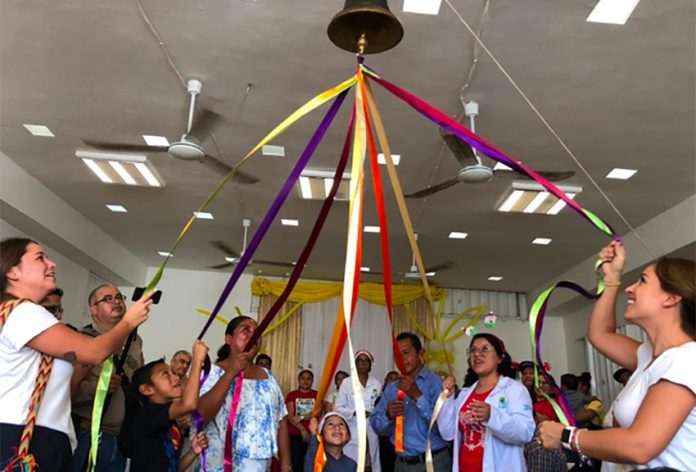Six patients at the Eloísa Angulo McLiberty Clinic in Chetumal, Quintana Roo, received the best Christmas present they could hope for — the chance to ring the clinic’s bell.
It’s not just any old bell: it’s a special ceremony for inpatients who have been declared free of cancer.
The six, aged 3 to 18, are the third group to perform the act, which came after some three years of treatment for acute lymphoblastic leukemia at the clinic, part of Chetumal General Hospital.
“Each one has a different story and we celebrate today that they have a happy ending,” said pediatric hematologist and clinic chief Asunción Encarnación Jiménez.
The declaration and ceremony mean that major treatment has ended. As the patients are from different parts of Quintana Roo this has often meant hardship for both patient and family. In one case, a child needed a transplant, which required a transfer to another hospital for eight months before the patient and family could return home.

The day was special because it means a much more normal life from here on. The six will still need to have monthly checkups for the next 10 years to make sure the cancer has not returned, but the days of hospitalization, chemotherapy and other intensive treatment have ended.
Acute lymphoblastic leukemia is the most frequent cancer for children in Mexico, with a rate of 122 cases for every 100,000 children aged 14 and under. Although the overall five-year survival rate in developed countries is over 90%, it is only between 50 and 65% in Mexico. It is not known whether or how much ethnicity or differing standards of care contribute to the disparity. The average age for diagnosis is 7.6 years of age but it has been found in children under 2.
The clinic treats about 60 children under the age of 18 and has a 63% survival rate. It has reported lacking supplies, including medicines, but no child has gone without chemotherapy because other organizations such as Casa de Amistad and the DIF family services agency have stepped in to buy medicines from abroad.
In 2019, it received 20 new cases and saw four deaths. According to the head of the facility, most children do not die as a direct result of the cancer but rather through complications such as infections.
Source: La Jornada Maya (sp)
